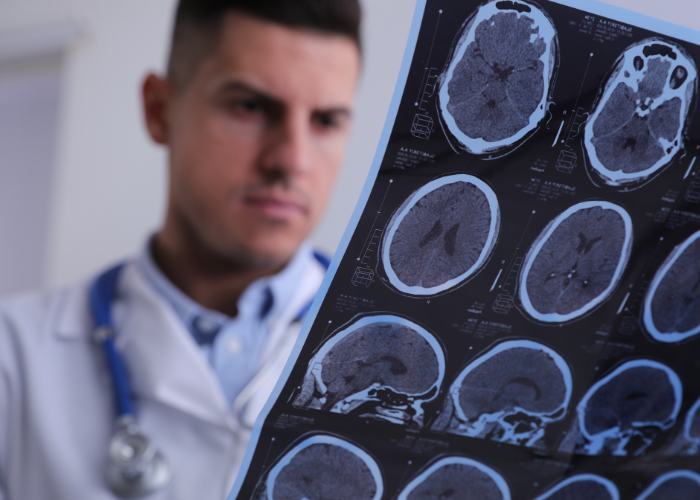Amyotrophic lateral sclerosis (ALS) refers to a progressive and fatal neurologic illness that affects the brain and spinal cord. It is a relatively rare disease affecting about 6000-7000 individuals yearly. However, studies suggest that there has been a 9% increase in its prevalence since 2015 and it is expected to rise by up to 16% by 2040.
Currently, there is no definite cure for amyotrophic lateral sclerosis. Fortunately, there are plenty of ways to manage and prevent the progression of its debilitating symptoms. If you or someone you love struggles with ALS, then read on below to learn more about the illness.
Amyotrophic lateral sclerosis is a progressive neurodegenerative condition that impairs and damages the neurons in the brain. More specifically, it targets and damages the motor neurons, which control the voluntary muscular movements of the body.
ALS disrupts communication between neurons by gradually destroying their insulation. As they deteriorate and die, they won’t be able to send signals to and from the muscles, thus leading to muscle weakness and atrophy.
Additionally, the death of motor neurons can also impair the diaphragm’s normal function. Therefore, patients with ALS can also experience breathing difficulties over time.
The cause of ALS remains unknown, but researchers have identified mutations in genes linked with the disease that may explain why some people develop symptoms much earlier than others.
ALS is also known as Lou Gehrig's disease, after the first patient to die from it (Lou Gehrig). This condition may be classified into two, depending on its onset:
The onset and severity of each symptom may vary from person to person. It may also depend on their age and any underlying medical condition. Generally, patients with ALS experience loss of control over their muscles and general muscle weakness. Other signs and symptoms include the following:
ALS symptoms, such as muscle spasms, start out as mild involuntary movements that may go unnoticed. Initially, it affects the hands, arms, and limbs, then spreads out to the rest of the body muscles.
Over time, these symptoms can become severe to the point of causing permanent damage to the neurons that control these muscle movements. If left untreated, some complications patients might experience include breathing problems, eating disorders, dementia, and speech difficulties.
A neurologist can efficiently diagnose amyotrophic lateral sclerosis through medical history review and symptom correlation. They may also order specific diagnostic tests to rule out certain illnesses and confirm a suspected ALS case. This includes the following:
Once a diagnosis has been made, your physician will start coordinating with other healthcare providers to create a treatment plan that will suit your unique needs.
Amyotrophic lateral sclerosis is a progressive and irreversible condition. This means that the internal damages that had already been done may not be reversed anymore. However, there’s a significant chance of slowing down its progress and managing its symptoms through these treatment options.
the FDA approved three types of medications that can help slow down the progression of ALS and prolong one’s life expectancy. These are Riluzole, Edaravone, Sodium phenylbutyrate and taurursodiol.
Your physician may also prescribe other types of medications that can reduce or relieve other symptoms, such as muscle spasms and cramps.
physiotheraphy is an important aspect of your treatment plan as this can help maintain muscle strength, range of motion, and other normal functions. It can also serve as a low-impact exercise that can help you remain mobile and independent for as long as possible.
this allows you to learn how to move and adapt to your new restrictions and limitations. Your occupational therapist will help you find the best and safest techniques to perform certain tasks, such as walking, dressing, and eating.
your physician or a pulmonologist will provide specific devices that can assist with your breathing. They might also give instructions on how to exercise and keep the lungs functional.
you will work with a speech therapist to improve your communication skills. They may also introduce easier and more convenient communication methods, such as through pen and paper or computer-based equipment.
battling ALS can have serious consequences for one’s mental and psychological health. So having mental counselling and emotional support as part of your treatment plan can be extremely crucial to both you and your family.

The symptoms of ALS can be debilitating, but you don’t have to suffer in silence. You can combat disease and maintain your quality of life with the right treatments and lifestyle changes.
At Neuro Rehab, we are equipped to help patients with ALS get the proper therapy and medical care they deserve. We will assist you and your family every step of the way and provide the utmost comfort and dignity to your loved ones.
We provide plenty of programs that can address various illnesses, such as traumatic brain injury rehabilitation, stroke patient rehab, post-acute rehab, and more. Contact us at 800-626-3876 to learn more!
If you are interested in our services, schedule a tour today!
The material contained on this site is for informational purposes only and DOES NOT CONSTITUTE THE PROVIDING OF MEDICAL ADVICE, and is not intended to be a substitute for independent professional medical judgment, advice, diagnosis, or treatment. Always seek the advice of your physician or other qualified healthcare providers with any questions or concerns you may have regarding your health.

We know that choosing the next step in your recovery from a catastrophic illness or injury is complex. Together, we can help you take the next step.
Contact us with any questions today.